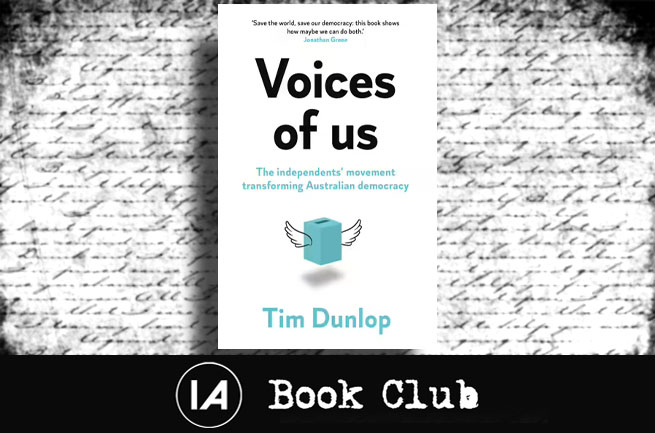Romaine Rutnam reviews Dr Benjamin T. Jones' new book calling for a Republic of Australia based on democracy, meritocracy and community.
I DREW BREATH reading the third sentence.
Research Fellow Dr Benjamin T. Jones dedicates his new book, This Time: Australia's Republican Past and Future, ‘to the memory of John Hirst, historian, republican, friend’.
He starts the introduction quoting Hirst’s 1994 first line: ‘Australia was born in chains and is not yet fully free’.
Then, Jones states: ‘Some may cringe at the implications’.
Jones shows – as in his previous publication he co-edited with Mark McKenna in 2013 – collaboration with Indigenous colleagues is essential. He reminds us: ‘As Indigenous academic Anthony Dillon stresses, let’s not become "just a republic" but "a just republic"'.
The author’s new book is satisfyingly balanced. It has two major sections ‘The Past’ and ‘The Future’ each comprising four chapters, bookended by an introduction and conclusion.
As a 1969 immigrant to Australia, I found his take on the past useful.
On reading the first four rousing quotes dating from 1854 to 1890, I wonder, with Jones, whether:
Australia’s early republican heroes have largely been forgotten … Perhaps [because] they are an embarrassment also. They remind us that a republic has been on the national to-do list for over 160 years.
Lessons Jones draws from history in his chapter ‘How to lose a referendum’ include:
- The British ‘bureaucrats of empire’ had learned from the United States revolution. There was no need pressing the issue of Australia’s independence if some democracy was conceded. He suggests that ‘The designation of inevitability … at once legitimises the cause while robbing it of impetus’.
- The debates in the 1960s on decimalising Australia’s currency and what to call it, as well as debates lasting two decades before a national anthem was decided on by Prime Minister Bob Hawke in 1984 — in time for the Los Angeles Olympics. These showed what Jones calls ‘the schizophrenic nature of Australian identity’. If we were not still British, what were we?
- The 1999 referendum loss demonstrated that Republicans must unite. They must want change more than they want their favoured model.
Jones addresses the future by offering suggestions, as conversation starters.
In 'Chapter 5, Why do we want a republic anyway?' he shows by quoting the existing preamble in Australia’s Constitution that:
Like the Constitution itself, the preamble has no inspiring language… It is not the birth certificate of a nation but the legal framework of a federated British dominion.
His alternative is simple, short (76 words) and inspiring, beginning: 'We, the Australian people, hold these three dear: democracy, meritocracy and community'.
He simplifies the Republican argument by saying Australia can do better. You can either support monarchy or equality, not both.
In 'Chapter 7, Symbols matter', he wants debate on the flag and the heads on our coins. He joins others seeking change to our anthem’s words "young and free".
Chapter 8 offers several ways forward. He canvasses the role of the head of state. He suggests a hybrid model for nominating potential candidates for this position. These need endorsing by at least two-thirds of representatives in each State and Territory parliament. Their names are then put to a popular national vote. Jones proposes calling Australia’s republican head of state "Beanna Elder".
In concluding, Jones notes 2026 will mark 125 years since Australia’s Federation. Clearly, he does not want it to commemorate British monarchy. He was a year short of being eligible to vote in 1999.
This book shows his passion and energy for his cause. Jones is persuading all Australian citizens to rise to our challenge. We must make our collective will the only legitimate source of power in future. I wish him success.
Find out more about 'This Time: Australia's Republican Past and Future' here.
Romaine Rutnam is a retired public health policy analyst. She is active in Dying with Dignity NSW and many other advocacy organisations for healthy social change.

This work is licensed under a Creative Commons Attribution-NonCommercial-NoDerivs 3.0 Australia License
Monthly Donation
Single Donation
Keep up! Subscribe to IA for just $5.











